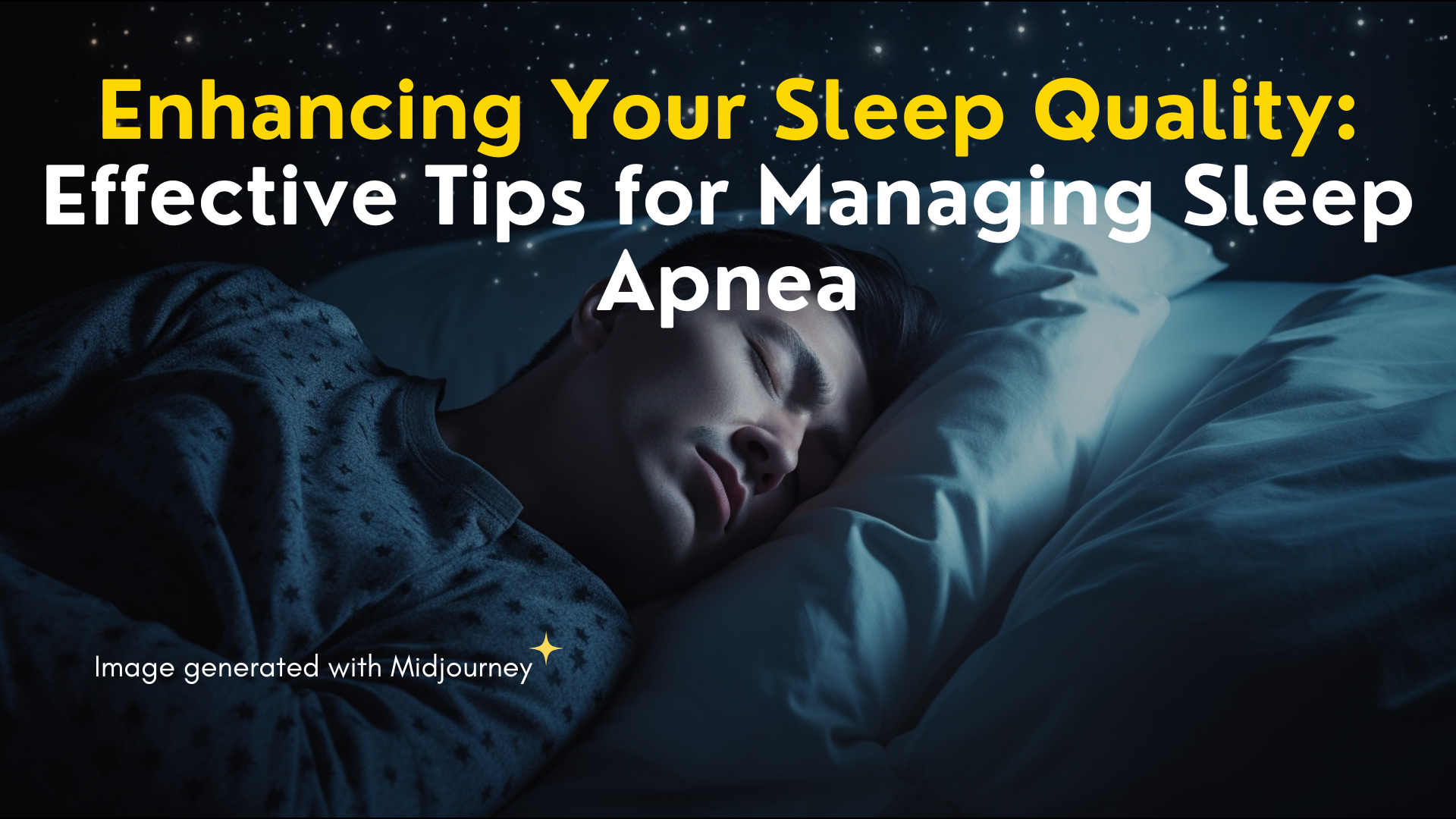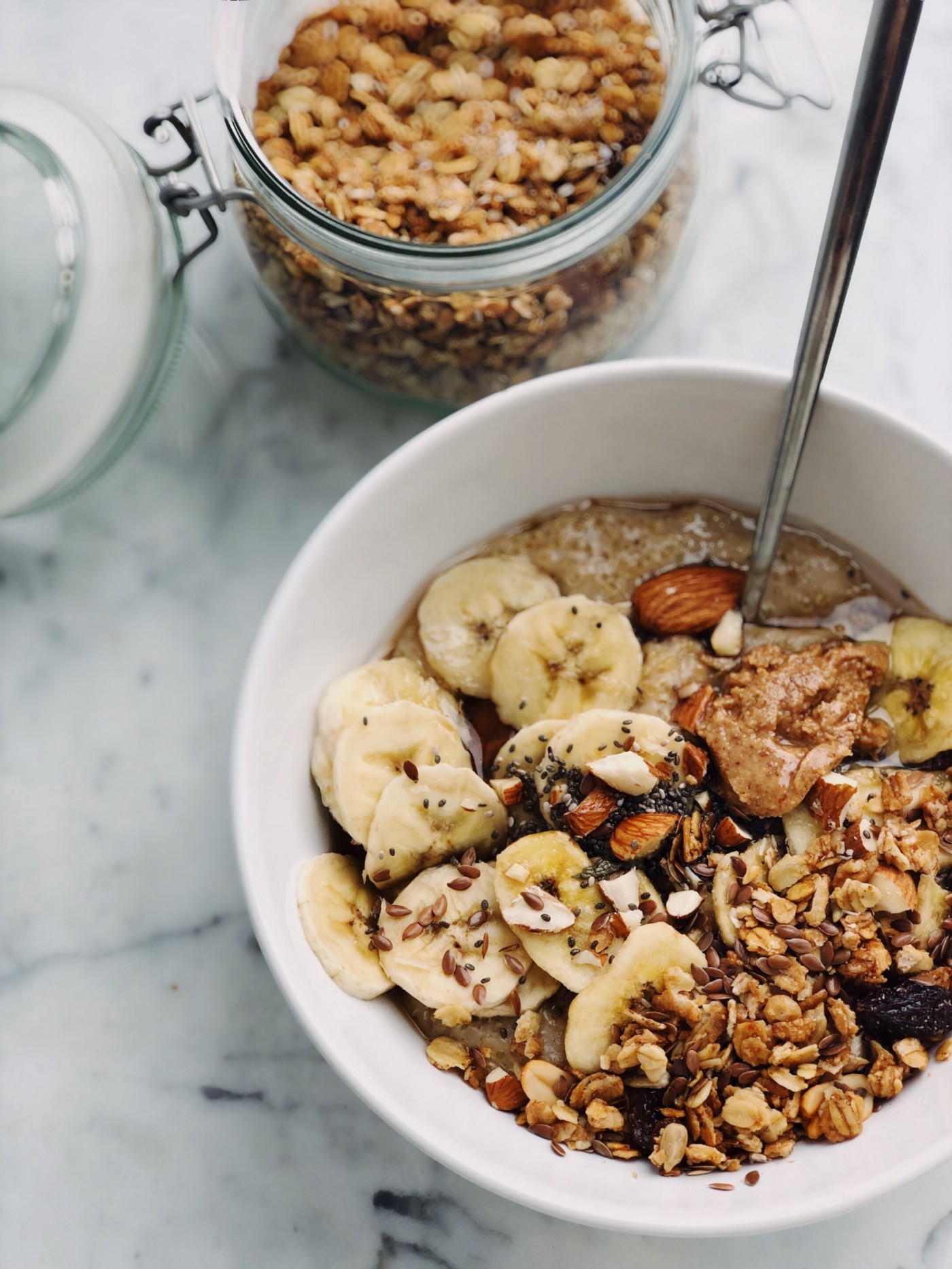Published Date January 24, 2003
Sleep Apnea: Tips to Promote Restful Sleep
By Team Ariso
4 min read
Last update date: January 24, 2003

This is a comprehensive guide on sleep apnea, a common sleep disorder that can significantly affect you but isn’t talked about enough. Tons of people have it but they either choose to ignore its impact on them, are ignorant, or are procrastinating when its about taking appropriate care. In this blog, we will explore what sleep apnea is, its symptoms, the complications associated with the condition, and how dietary choices can contribute to better sleep quality. By understanding sleep apnea and implementing lifestyle changes, you can work towards achieving restful and rejuvenating sleep.
What is Sleep Apnea?
Sleep apnea is a sleep disorder that can be identified by symptoms such as loud snoring and persistent fatigue, even after a full night's sleep. There are three main types of sleep apnea:
- Obstructive Sleep Apnea (OSA): This is the most common type of sleep apnea, occurring when the muscles in the throat relax, causing a partial or complete blockage of the airway during sleep.
- Central Sleep Apnea (CSA): Central sleep apnea is less common and occurs when the brain fails to send proper signals to the respiratory muscles, leading to interrupted breathing during sleep.
- Complex Sleep Apnea Syndrome: Also known as treatment-emergent central sleep apnea, this condition is characterized by a combination of obstructive and central sleep apnea.
Sleep apnea disrupts the normal breathing pattern during sleep, resulting in pauses in breathing and reduced oxygen levels. It is important to recognize the different types of sleep apnea and seek appropriate medical guidance for diagnosis and treatment.[1]
Symptoms of Sleep Apnea
Identifying the signs and symptoms of sleep apnea is vital as they can overlap between obstructive and central sleep apnea. The typical indicators for both types include:
- Daytime headache
- Insomnia or difficulty staying asleep
- Excessive daytime sleepiness (hypersomnia)
- Inability to concentrate while awake
- Irritability
- Loud snoring
- Episodes of stopped breathing during sleep
- Heavy breathing while sleeping
- Dry mouth upon waking up
Being aware of these symptoms is crucial for early detection and seeking appropriate medical attention. If you experience any of these signs or have concerns about your sleep quality, it is recommended to consult with a healthcare professional for a thorough evaluation and diagnosis.[2]
Complications of Sleep Apnea
Sleep apnea can give rise to several complications that can have a significant impact on your health. Some of these complications include:
- Increased Diabetes and Insulin Resistance Risk: Sleep apnea has been associated with an increased risk of developing type 2 diabetes and insulin resistance, which can affect blood sugar regulation.
- Non-alcoholic Fatty Liver Disease: People with sleep apnea are more prone to experiencing abnormal liver function, leading to the development of nonalcoholic fatty liver disease.
- Higher Risk of Heart Disease: Sleep apnea is linked to a higher risk of heart disease, including conditions such as high blood pressure, abnormal cholesterol levels, elevated blood sugar levels, and an enlarged waist circumference.
- Surgical Complications: Sleep apnea can pose challenges during surgery as certain medications and general anesthesia can exacerbate the symptoms. Informing your surgeon about your sleep apnea and treatment plan prior to any surgical procedure is important to minimize potential complications.
Untreated sleep apnea can harm your well-being, causing fatigue, cognitive impairment, and increased accident risk. It is linked to cardiovascular problems like high blood pressure, heart disease, and stroke, as well as metabolic disorders such as obesity and type 2 diabetes. Prompt diagnosis and treatment are crucial for reducing complications and improving overall health.[3]
Diet and Sleep Apnea: Foods for Better Sleep
Consuming certain foods can support better sleep quality and potentially alleviate sleep apnea symptoms. Consider incorporating the following foods into your diet:
- Omega-3-rich foods: Seafood, such as fish, is an excellent source of omega-3 fatty acids, which can increase melatonin production and aid in better sleep.
- Melatonin-rich foods: Fruits and vegetables like asparagus, corn, cherries, grapes, broccoli, and cucumbers contain natural melatonin, a hormone that promotes sleep. Tart cherry juice is often recommended as a source of unprocessed melatonin.
- Tryptophan-infused foods: Turkey is well-known for its tryptophan content, which gradually converts into melatonin. Other sources of tryptophan include fish, chicken, almonds, beans, and green leafy vegetables.
Include magnesium-rich foods like spinach, almonds, and pumpkin seeds for better sleep. Try herbal teas like chamomile and valerian root to relax before bed. Incorporate whole grains and complex carbohydrates for relaxation. While diet alone can't cure sleep apnea, these foods can help alleviate symptoms. Consult a healthcare professional for personalized advice.[4]
Conclusion
Sleep apnea can significantly impact your overall well-being and quality of life. Recognizing the symptoms, understanding the potential complications, and making positive changes to your diet are essential steps toward managing this condition effectively. By consulting with a healthcare professional and implementing a comprehensive approach that includes lifestyle modifications, you can work towards achieving restful sleep and improving your overall health. Sweet dreams!
References
- https://www.mayoclinic.org/diseases-conditions/sleep-apnea/symptoms-causes/syc-20377631
- https://www.mayoclinic.org/diseases-conditions/sleep-apnea/symptoms-causes/syc-20377631
- https://www.hopkinsmedicine.org/health/wellness-and-prevention/the-dangers-of-uncontrolled-sleep-apnea
- https://www.moresmiles.com/blog/2018/12/02/what-you-should-and-shouldnt-eat-if-you-have-sleep-apnea/
Keep reading

Sleep Apnea and Nutrition
All about plant-based diet, melatonin, omega-3 fatty acids and sleep apnea.
By Naurin Ansari

Pumpkins: From Gourds to Goodness
By Naurin Ansari

Pre-Workout Meals To Boost Stamina
All about carbohydrates, energy and pre-workout snacks.
By Arpita Sudev

Cooking Oils & How To Use Them
All about monounsaturated fats, polyunsaturated fats, trans fat and cooking oil.
By Arpita Sudev
Choose Healthy With Us.
Know the real truth about your food. Stay informed and healthy, for free.

Download the App Now
Certified nutritionists trust our food recommendations. Safe to say, so can you :)









